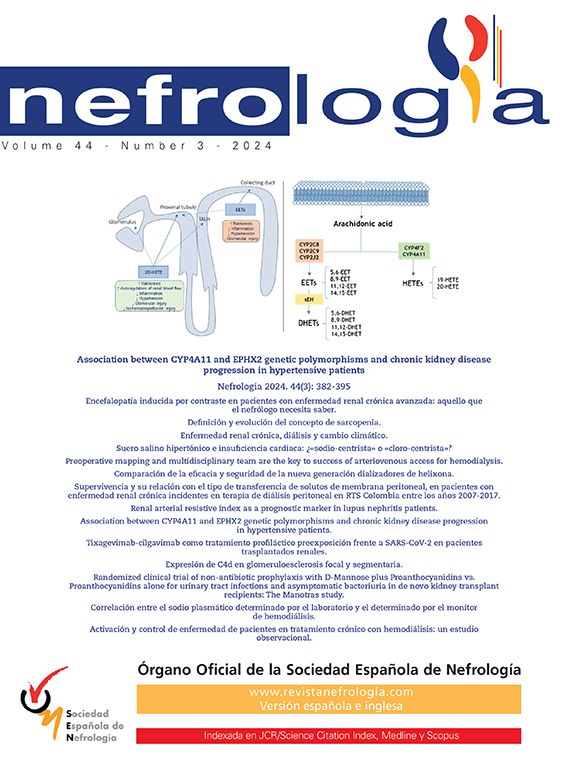Nefrologia 2013;33(3):424-5.
doi: 10.3265/Nefrologia.pre2013.May.12102.
Replay to: Negri AL.
Comment on Nefrologia 2013;33(3):424.
Nefrologia 2013;33(1):1-6.
Content
To the Editor:
I thank Dr Armando Negri for his interest in and Comment on the editorial ‘Are the aims of the K/DOQI guidelines for mineral metabolism disorders in patients with stage 3-5 chronic kidney disease unachievable or inadequate?’,1 written with the aim of putting into context the original published in the same issue on the adequacy of the K/DOQI guidelines to stage 3 to 5 chronic kidney disease patients (OSERCE II).2
Dr Negri disagrees with the term “adequate” applied by me to the values recommended in the K/DOQI guidelines, owing to a lack of evidence in prospective studies. I justify using the term for two reasons: 1) the credibility that we owe guidelines for which the literature has been thoroughly revised in order that experts of recognised prestige may determine the best evidence available and 2) the adjective “adequate” is not equivalent to “ideal”. I understand that when it is applied to medicine, there is a slight distinction, with it being understood as something that is not perfect, although it may be “reasonable” or “advisable”.
Nevertheless, the concern of Dr Negri has obliged me to reflect on the word and agree with his evaluation. The term “adequate” cannot be applied to aims that are unachievable. The acronym S.M.A.R.T. is employed as a mnemonic resource to remind us what properties must meet the aims (specific, measurable, achievable, result-oriented).
Dr Negri summarises by attributing the fact that they are unachievable due to the unavailability of drugs such as oral paricalcitol, sevelamer carbonate and lanthanum carbonate for their use in pre-dialysis. This is a simplification of the reasons that I presented, of which there are various, although I still continue to consider this reason as highly important (it is an opinion).
I agree with Dr Negri that the study by Block et al.3 is disturbing. The methodological criticisms for this are obvious and numerous.4 This is not the place to analyse it in detail. However, I believe that it is having excessive impact due to the fact that it has been published in one of the most prestigious journals in our specialty and because it has been signed by authors with great scientific backgrounds. We should wait for more solid evidence, without neglecting the best evidence available.
Conflicts of interest
The authors declare that they have no conflicts of interest related to the contents of this article.





